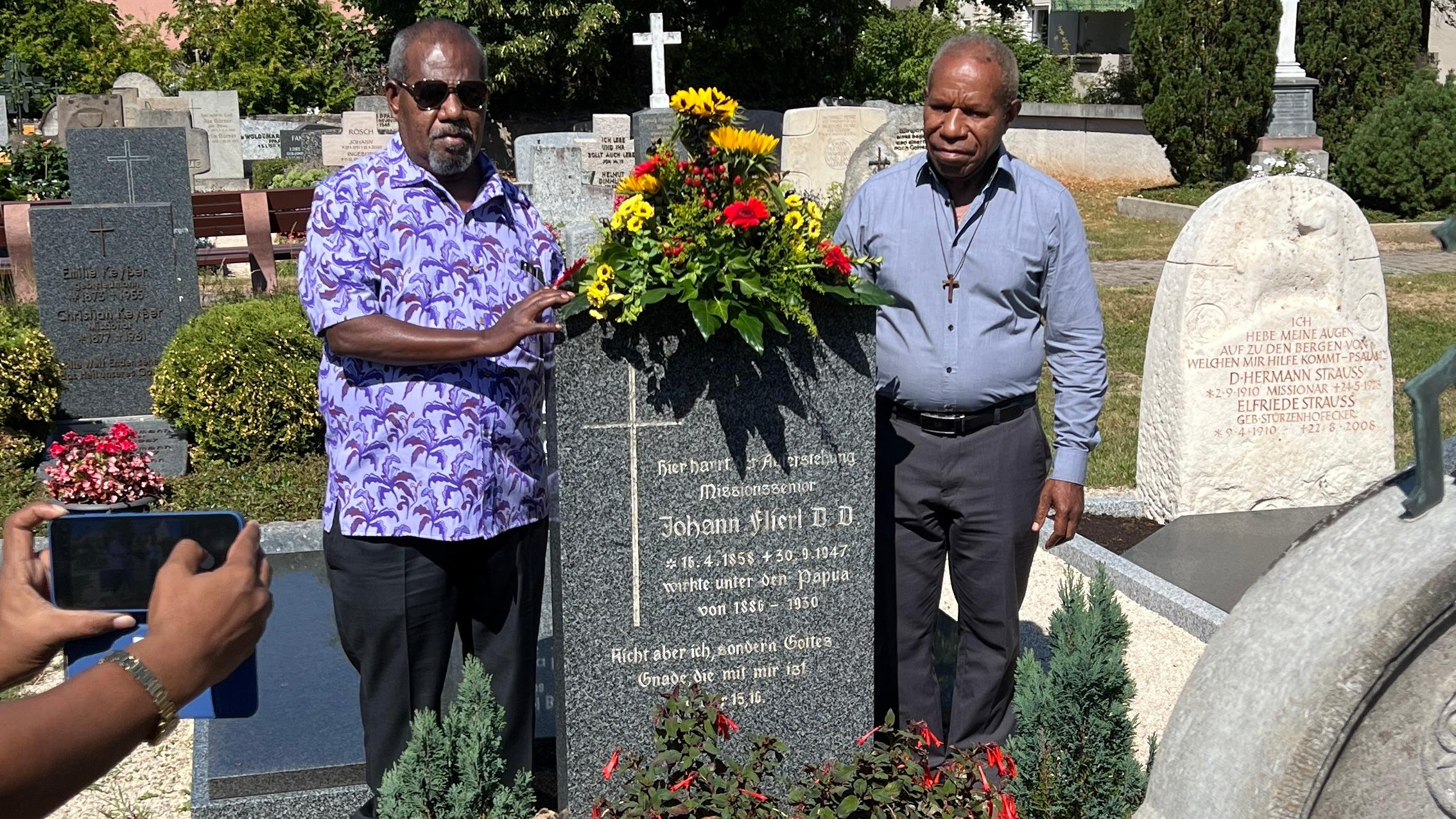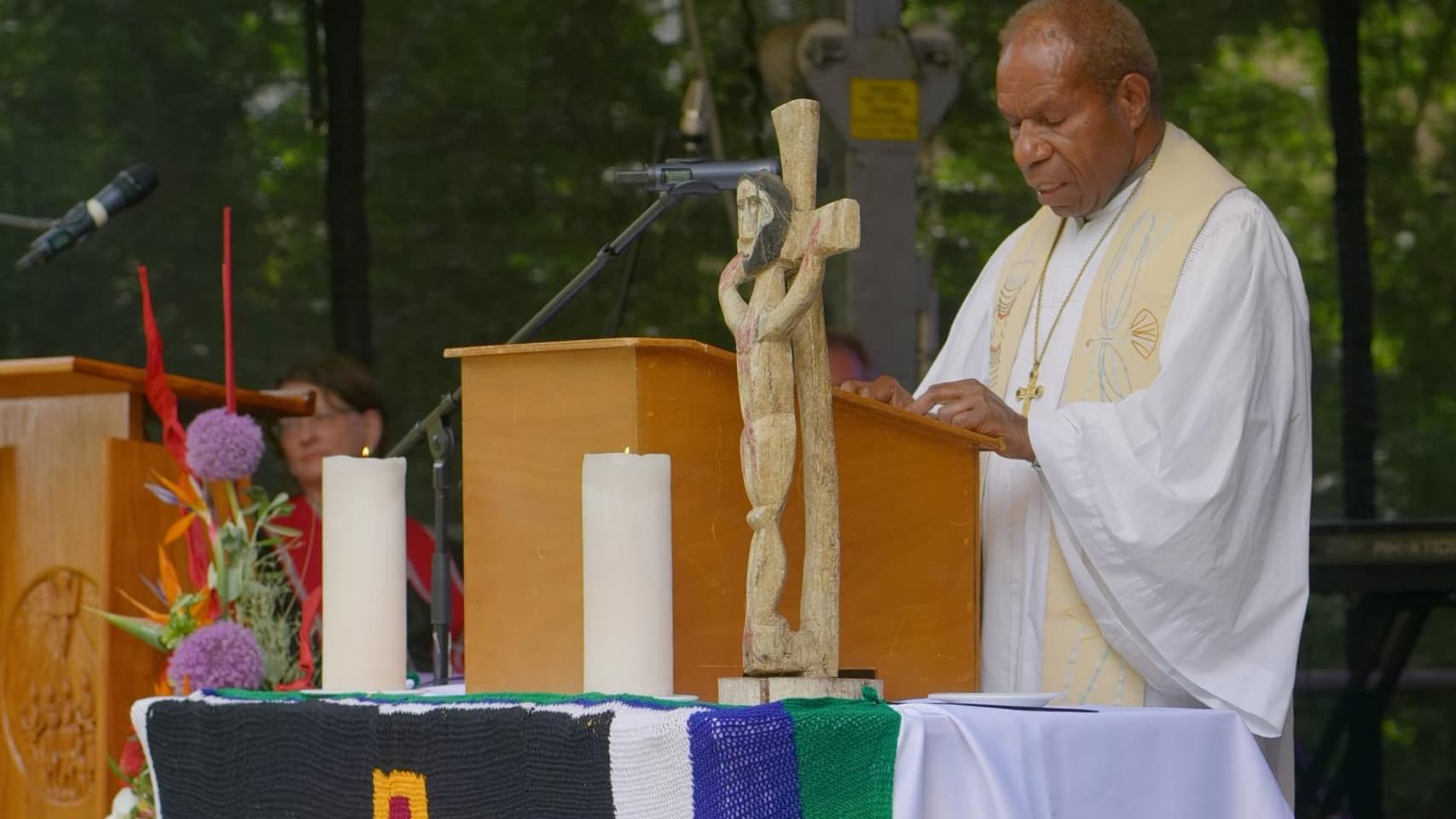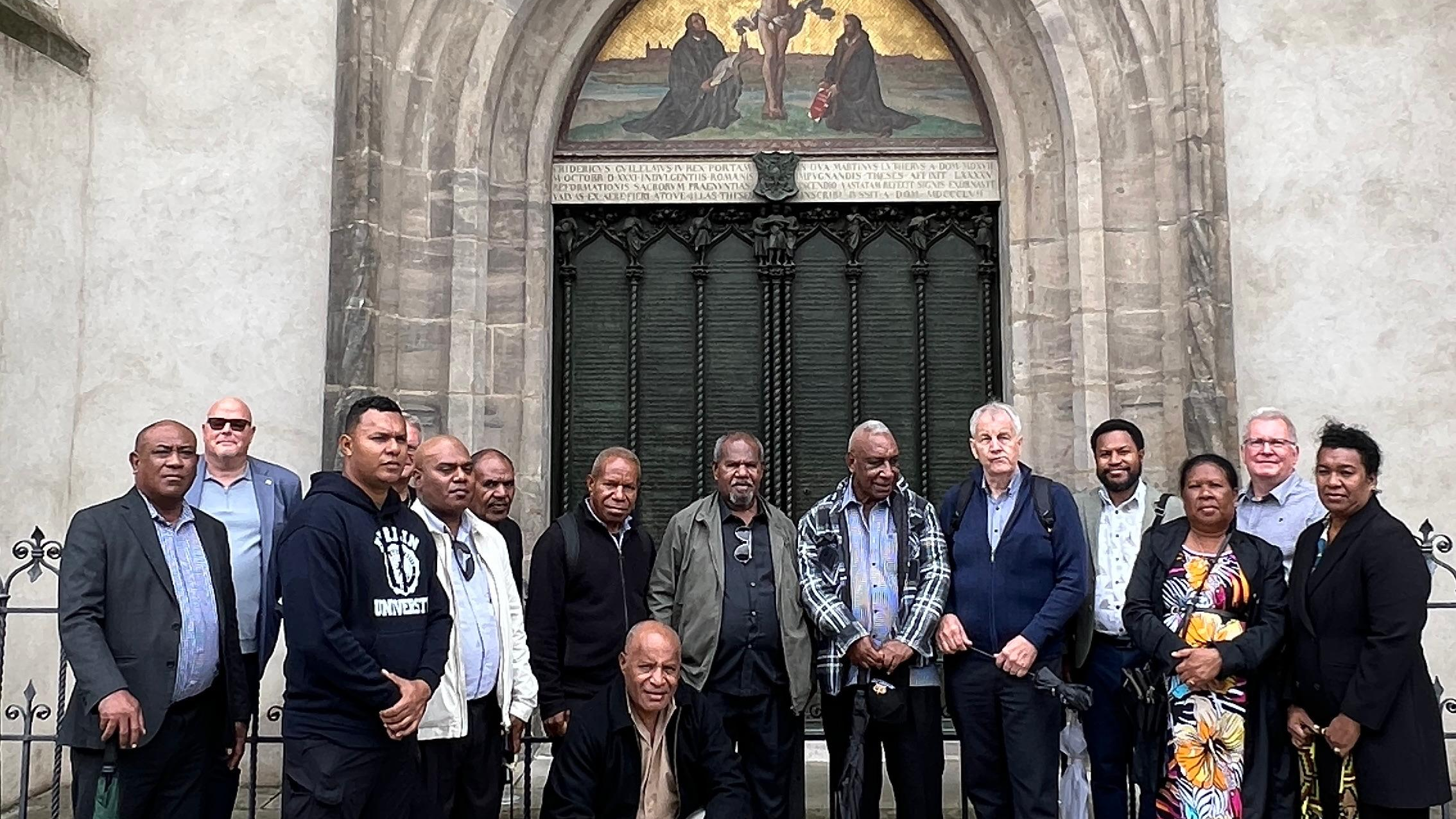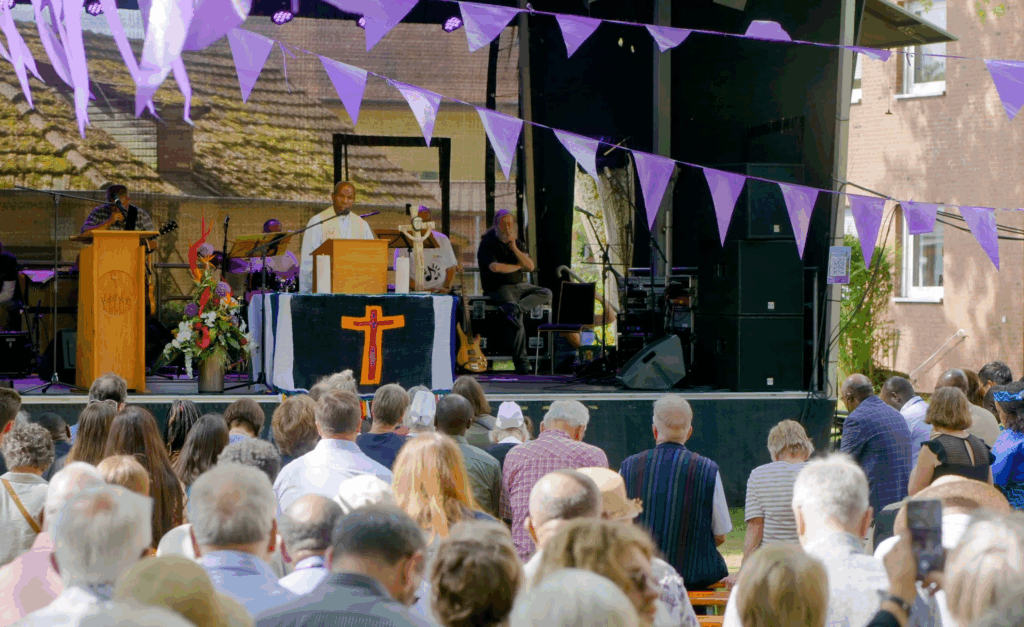
Many of us in the Evangelical Lutheran Church of Papua New Guinea know Finschhafen as the cradle of our mission; the sacred place where the Gospel first reached our shores. Yet the story is far deeper and richer than we often recount. The roots of our Church stretch far beyond the shores of Morobe, into the heart of Germany; into its missionary movements, its spiritual heritage, and even its complex colonial history. The very name Finschhafen bears witness to this layered past. It was named after the German explorer Otto Finsch, whose journey was driven not by faith, but by political and economic ambitions. However, in God’s providence, it was the spiritual mission that would outlast all others, leaving an indelible mark upon our land and our lives.
That shared heritage was symbolized anew this month during a historic journey. For the first time, the representative of the Head of State and the Head of the Lutheran Church in Papua New Guinea traveled together to Germany, retracing the spiritual and historical paths that connect our two countries. Governor-General Sir Bob Dadae and ELCPNG Head Bishop Dr. Jack Urame journeyed together—both as national leaders and as Lutherans deeply connected to the German mission legacy. They were formally received by both the State and the Church in Germany, signifying the ongoing accompaniment.
On July 16, the Governor-General, representing our Head of State, was formally welcomed by the President of Germany at the Presidential Palace in Berlin. What followed was a week-long spiritual pilgrimage hosted by the Evangelical Lutheran Church in Bavaria, guided by Mission EineWelt—the global mission agency and spiritual successor of the historic Neuendettelsau Mission Society. It was this very mission society that, under God’s leading, sent Pastor Johann Flierl to New Guinea in 1886 to sow the seeds of the Gospel.
Neuendettelsau, though a small town, has long been a giant in the story of mission. Many of its people have served in Papua New Guinea, and Tok Pisin is still spoken by some to this day. That this town would commemorate PNG’s 50th year of independence with such warmth and welcome; inviting not only our national and church leaders, but also mission partners from Africa, Asia, and the Americas—was a testament to the deep spiritual kinship forged over generations.

As we prepare to celebrate 50 years of political independence on September 16, 2025, it is fitting to look further back; to recognize that the foundations of our modern nation were laid long before 1975. German Lutheran missionaries, arriving over 80 years earlier, brought more than the Gospel; they brought holistic transformation. Through schools, clinics, literacy, agriculture, and community development, the Church laid the groundwork for a just and flourishing society. Though direct political ties with Germany ceased after World War I, the spiritual bonds have remained unbroken—held together by the enduring call of Christ to serve, teach, and love.
It is remarkable that what began as colonial exploration evolved—through the faithfulness of missionaries—into a Gospel movement that touched the very soul of our people. Otto Finsch may have named the harbor, but it was Johann Flierl who brought the light of Christ to its shores. Originally sent to serve German settlers, Flierl soon discerned a deeper divine call—to bring the Good News to the indigenous people. Without the infrastructure initially provided by the colonial authorities, and without the continuing support of faithful believers back in Germany—such as children who gave their coins to build mission ships—this work may not have flourished. But by God’s grace, it did.
Pastor Flierl’s obedience to God’s call has shaped the story of our Church. Even though place names like Finschhafen, Dregerhafen, Alexishafen, and Mount Wilhelm echo with the memory of the former German Empire’s political endeavor, the most enduring fruit is not found in names, but in the vibrant faith communities across PNG that now form the Evangelical Lutheran Church of Papua New Guinea; a Church born of mission and still called to mission.
Indeed, if the German Empire had not entered the Pacific, Pastor Flierl might never have come. But more importantly, if he had not answered the higher call of Christ beyond empire, our Lutheran witness today would be vastly different. The early partnership of Church and State in Germany paved the way for the birth of our Church. And today, we see that partnership renewed.
During their recent journey, Grand Chief Sir Bob Dadae and Bishop Dr. Jack Urame walked this historical and spiritual path together—state and Church leaders, but also brothers in Christ. Their welcome by both the President of Germany and the Evangelical Lutheran Church of Bavaria was a profound symbol of enduring fellowship and faith.

The pilgrimage included visits to sites of deep spiritual significance—Wartburg, where Martin Luther translated the Bible; Wittenberg, the birthplace of the Reformation; and Neuendettelsau, the heart of our mission partnership. These sacred places reminded all present that our story is part of something much larger—a global movement of faith, shaped by God’s grace and the labors of those who came before us.
On Sunday, July 20, the visit culminated in a celebration of the Global Church in Neuendettelsau. Bishop Urame preached the message “Walking New Paths with God,” drawing from Matthew 9 and 10. “We are part of this movement,” he said, “and that is why we celebrate today as a Church.” He reminded us that through baptism, we are called to walk with Christ in service, mission, and hope. He honored the legacy of missionaries who built schools, hospitals, and churches—not for their own glory, but as servants of Christ.

But he also offered a prophetic challenge: the harvest remains plentiful, yet the workers are few. He called the Church to prayer and action—to raise up new leaders, empower the laity, and embrace new forms of mission. “You may not be a pastor,” he said, “but you are a Christian, gifted by God to serve in His mission.”
As the Church in PNG looks to the future, we do so not in nostalgia, but in renewed faith. “Even after 50 years of independence,” Bishop Urame declared, “the mission will continue. We will walk with God—in renewed spirit, renewed strength, and renewed hope in the promise of Christ.”
As we mark this historic jubilee, we give thanks—not only for political freedom, but for the spiritual freedom brought through the Gospel. May we honor the legacy we have inherited by faithfully continuing the mission entrusted to us. The story is not over. The journey continues—with Christ at the center, and with brothers and sisters around the world walking beside us in God’s mission.


